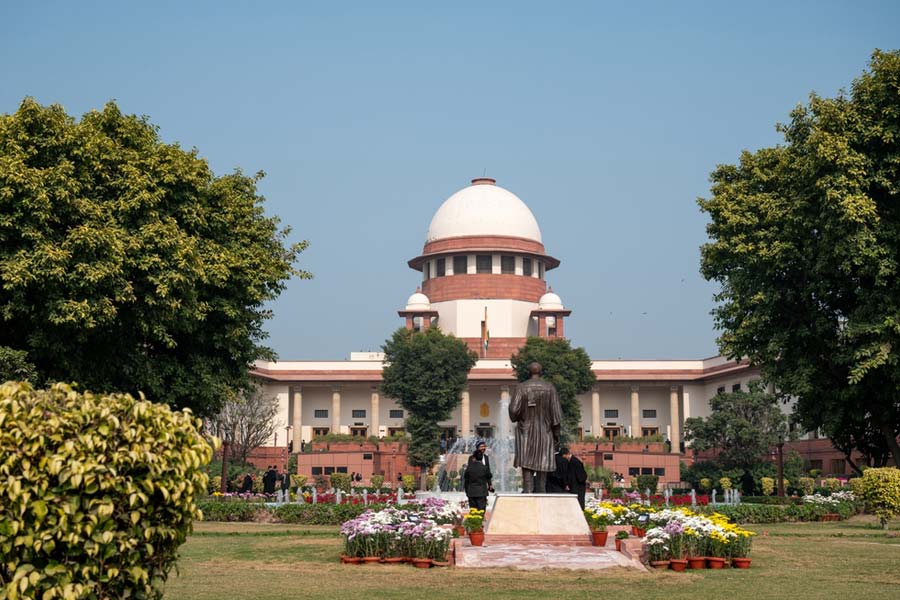The Supreme Court has ruled that prior sanction is mandatory for prosecuting public servants under the Prevention of Money Laundering Act, rejecting the Enforcement Directorate’s contrary argument.
“We have carefully perused the provisions of the PMLA. We do not find that there is any provision therein which is inconsistent with the provisions of Section 197(1) of CrPC,” the bench of Justice Abhay S. Oka and Justice Augustine George Masih said.
Section 197(1) of the CrPC, 1973 — which corresponds to Section 218 of the Bhartiya Nagrik Suraksha Sanhita or BNSS 2023 — reads: “...When any person who is or was a Judge or Magistrate or a public servant not removable from his office save by or with the sanction of the Government, is accused of any offence alleged to have been committed by him while acting or purporting to act in the discharge of his official duty, no Court shall take cognisance of such offence except with the previous sanction….”
The bench said: “Considering the object of Section 197(1) of the CrPC, its applicability cannot be excluded unless there is any provision in the PMLA which is inconsistent with Section 197(1). No such provision has been pointed out to us. Therefore, we hold that the provisions of Section 197(1) of CrPC are applicable to a complaint under Section 44(1)(b) of the PMLA.”
The apex court passed the ruling while dismissing the ED’s appeal against an Andhra Pradesh High Court judgment that had quashed a special PMLA court’s summons to two civil servants over alleged money-laundering offences.
The high court had agreed with accused Bibhu Prasad Acharya and Adityanath Das that the ED needed to have obtained prior sanction under Section 197(1) of the CrPC, which it had not done.
Appearing for the ED, additional solicitor-general S.V. Raju argued that Section 71 of the PMLA overrides all other laws including the CrPC and the BNSS, and that it makes the requirement for a sanction under Section 197(1) of the CrPC inconsistent with the PMLA’s provisions.
Writing the judgment, Justice Oka said the objective of Section 197(1) of the CrPC was to ensure that honest and sincere public servants are not prosecuted for discharging their duties.
The ED has accused Acharya of conspiracy and connivance with then Andhra Pradesh chief minister Y.S. Jagan Mohan Reddy, who is charged with involvement in the allotment of 250 acres of land for an SEZ project to Indu Tech Zone Private Ltd in violation of norms, regulations and procedures.
Acharya is also accused of indirect involvement in money laundering through his alleged help to the Indu group of companies in the purported creation of vast proceeds of crime.
Das, who held the rank of principal secretary, is accused of conspiring with Reddy to allot an additional 10 lakh litres of water from the River Kagna to India Cement Limited without referring the matter to the Interstate Water Resources Authority and by violating norms, regulations and procedures.
“It is not even the allegation in the complaints (chargesheet by ED) that the two respondents were not empowered to do the acts they have done,” the apex court said.
“There is a connection between their duties and the acts complained of. The second condition for the applicability of Section 197(1) also stands satisfied, and therefore, in this case, Section 197(1) of CrPC applies to the respondents.”
The bench said Section 65 of the PMLA further makes the provisions of the CrPC applicable to all proceedings under the PMLA, provided they are not inconsistent with the PMLA provisions.
But it added: “However, it will be open for the appellant to move the Special Court to take cognisance of the offence against the two respondents if a sanction under Section 197(1) of CrPC is granted in future.”











